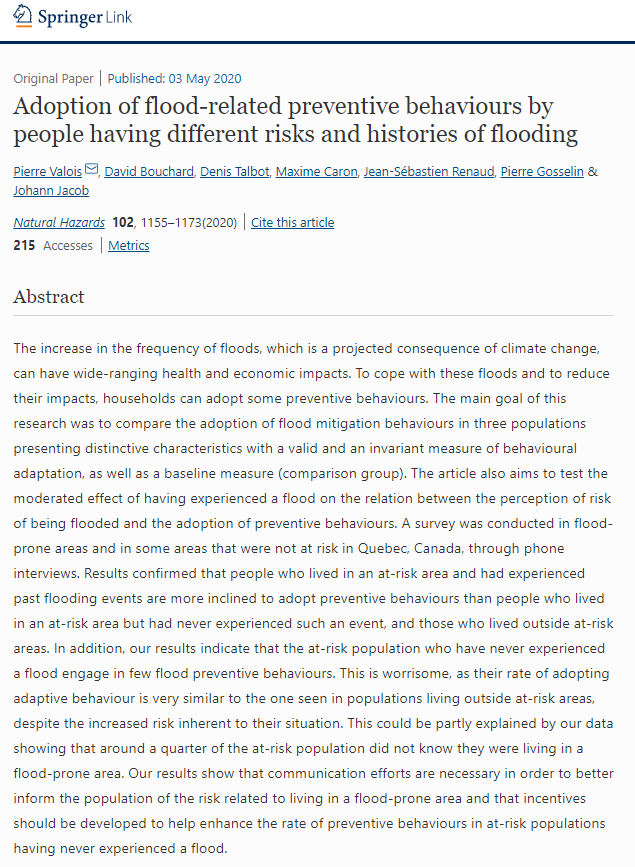The increase in the frequency of floods, which is a projected consequence of climate change, can have wide-ranging health and economic impacts. To cope with these floods and to reduce their impacts, households can adopt some preventive behaviours. The main goal of this research was to compare the adoption of flood mitigation behaviours in three populations presenting distinctive characteristics with a valid and an invariant measure of behavioural adaptation, as well as a baseline measure (comparison group). The article also aims to test the moderated effect of having experienced a flood on the relation between the perception of risk of being flooded and the adoption of preventive behaviours. A survey was conducted in flood-prone areas and in some areas that were not at risk in Quebec, Canada, through phone interviews. Results confirmed that people who lived in an at-risk area and had experienced past flooding events are more inclined to adopt preventive behaviours than people who lived in an at-risk area but had never experienced such an event, and those who lived outside at-risk areas. In addition, our results indicate that the at-risk population who have never experienced a flood engage in few flood preventive behaviours. This is worrisome, as their rate of adopting adaptive behaviour is very similar to the one seen in populations living outside at-risk areas, despite the increased risk inherent to their situation. This could be partly explained by our data showing that around a quarter of the at-risk population did not know they were living in a flood-prone area. Our results show that communication efforts are necessary in order to better inform the population of the risk related to living in a flood-prone area and that incentives should be developed to help enhance the rate of preventive behaviours in at-risk populations having never experienced a flood.
- 2320 rue des Bibliothèques,
- local 462, Québec, QC, Canada
- 418-656-2121, ext. 409330
- oqacc@fse.ulaval.ca
